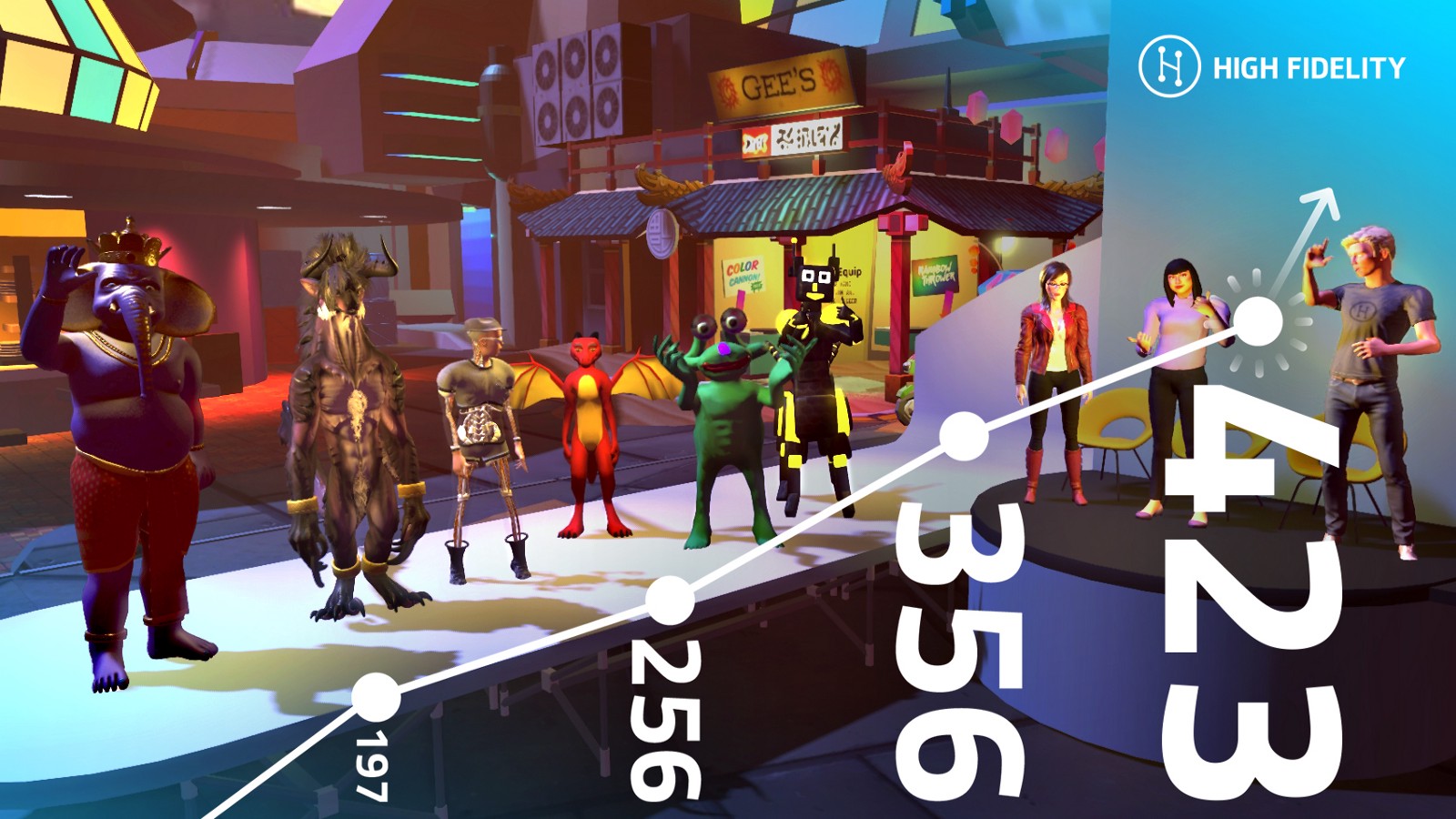For me the most important VR advance of 2018 was undoubtedly the Oculus Go. Finding a real sweet-spot in quality and price-point it created a super low friction, pick-up-and-go tetherless experience that is bringing new people in VR in droves. A recent report by International Data Corporation (IDC) has shown a resurgence in VR, with the market returning to growth in Q3 2018. Much of that is down to the Go.
As someone who has spent a lot of time in Microsoft's AltspaceVR lately I've noticed that the majority of people attending events seem to be using that headset. Recently I 'bumped into' a pastor in his 70s and an artist in his 60s who were both new to VR, thanks to the ease-of-use Go. So it's fair to say that with this device Oculus has greatly broadened the reach of Virtual Reality.
My dashing avatar at a well attended workshop in AltspaceVR
The selfie above shows my dashing avatar along 27 others (all controlled by real people) at a workshop in AltspaceVR a few weeks ago. The really impressive thing about this experience was how multiple overlapping conversations were perfectly intelligible thanks to the well projected spatial and proximal audio. Traditional (video) conferencing just can't match this. And again most attendees were using the Oculus Go.
As impressive as 27 avatars are for a VR event, the number pales in comparison to what High Fidelity has been achieving lately. That social VR platform saw over 700 visitors from 45 countries join their October load test, during which they reached peak concurrency of 423 people! Not only that but these concurrency numbers keep growing at a phenomenal rate as seen in the chart below -
Impressive avatar concurrency growth in High Fidelity
High Fidelity's ambition is to "build a technology that will reach Internet-scale and someday support a billion users." Which might almost be laughable were it not for the fact that founder Philip Rosedale was also the creator of Second Life, the pioneering virtual world that begot a massive hype cycle several years before the emergence of consumer VR. And is still going strong!
“One objective of these large-scale load tests has been to demonstrate the potential of using VR for big events with lots of people/avatars. This latest version of the High Fidelity server can support enough people for a big company meeting, live music events, conferences, festivals, talks, large classrooms, or whatever else you can dream up.”
If the most significant hardware advance of 2018 was the Oculus Go, the most exciting announcement for 2019 was certainly the Oculus Quest. Heralding the arrival of true (6-degrees-of-freedom or 6-DoF tracked) VR, in a cable-free standalone device, the Quest is a massive breakthrough for the industry, indeed a breakthrough we've all been waiting for since consumer VR arrived in 2014. Despite the higher price point I'm convinced it'll be an even bigger success than the Go.
Why? Well, spend a short amount of time in AltspaceVR and you'll see how people using high-end VR rigs, with full 6-DoF tracking and two hand controllers can express a huge amount of emotion through the mirrored body language and gesticulation of their avatars. I've watched presenter avatars pacing in front of their slides, craning their necks to read from the top, circling diagrams with their arms, and swinging around to point out precisely who in the audience they'll take the next question from. Exactly as they would in real life. Which makes the format utterly more compelling than any webinar I've ever 'attended'.
At one AltspaceVR event I went to a woman in the audience said her company had purchased, and handed out, 23 Oculus Go headsets to (presumably remote) employees so they could hold their office Christmas Party in Virtual Reality. That floored me. Not because I didn't realize the hardware and software is at a place where such a thing could actually be a fun experience but really because how matter-of-fact, no big deal it sounded. Technology progresses all around us like an unstoppable lava flow but sometimes you have to pause and realize that a notable threshold has been crossed. 2018 saw that milestone reached for practicable events and webinars in VR. It already works very well and it's only going to get better, way better, in 2019.
Which is why at Simvirtua and 3Dcamp we started holding meetings and events in VR towards the end of the year. 3Dcamp-fire happens every Sunday evening. It's a casual half-hour meetup for chatting about VR/AR in business. It's not just for techies - everyone is welcome. And you don't even need a headset to attend - there are great 2D clients for PCs and smartphones. Keep any eye on our @3Dcamp Twitter and Facebook accounts for updates.


